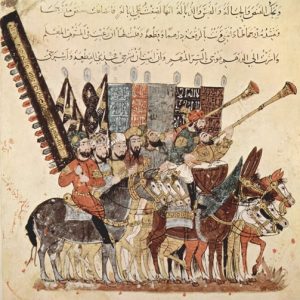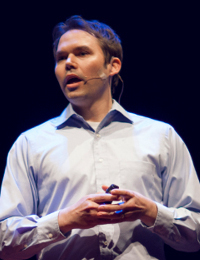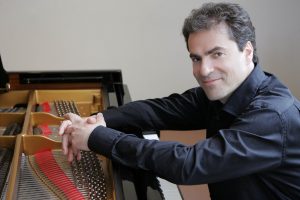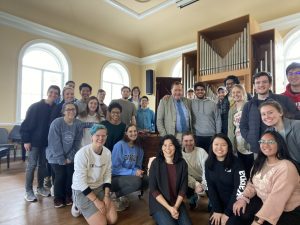Registration is just around the corner and we want to be sure you have all the information you need to fill your schedule with exciting music courses this spring! Below are all of the special topics courses that will be offered in Spring 2021. Questions? Email us at music@unc.edu.
MUSC 089 SEC 002: First-Year Seminar: Special Topics
 When Moors Ruled in Europe: Music of Al-Andalus
When Moors Ruled in Europe: Music of Al-Andalus
Instructor | Prof. Anne MacNeil, macneil@email.unc.edu
This course fulfills these General Education requirements:
- Historical Analysis (HS)
- The World Before 1750 (WB)
This course focuses on the Iberian Peninsula, Occitania, and the Basque region during the time of the Crusades – roughly 700 to 1492 – when Moors ruled in Western Europe. History of the Crusades has received a lot of scholarly and artistic attention recently, with a particular focus on including the history of Arabic and African cultures in Western Europe and on opening up a diversity of scholarly perspectives. This course recognizes the selective representation of cultures in historical narratives. Its goals are to empower students to interrogate sources of information and to write reparative histories of the music and culture of this region and time that recognize this ethnic diversity. Students will learn how to create ArcGIS StoryMaps for their reparative history projects.
MUSC 089 SEC 001: First-Year Seminar: Special Topics

Music in the Movies
Instructor | Prof. Lee Weisert, weisert@unc.edu
This course will examine the concepts and techniques of film music, covering many influential film scores dating from the 1930s to the current day. We will analyze and discuss the various conceptual issues relating to film music, such as theme, narrative, character development, synchronization, etc., and compare the different approaches that film composers have taken with respect to these issues. Students will research and analyze film scores from a variety of perspectives (sonic/musical, dramatic, historical, etc.) in the form of class presentations and research papers. In addition, students will learn to use digital sound technology to incorporate concepts explored in the class in the creation of original sound design elements for pre-existing film footage. No previous training in musical performance or music theory is required for the class. Students will not be expected to be able to read conventional musical notation.
MUSC 390H: Seminar in Music

Music and Politics
Instructor | Prof. Stefan Litwin, slitwin@email.unc.edu
The principle of “l’art pour l’art” (art for art’s sake) has dominated much of the way we hear and understand music. Since its emancipation from the church and courts, Western music has been viewed mostly as an aesthetic island immune to the influences of political reality. This seminar will examine the interrelatedness between music and society, focusing mainly though not exclusively on composers who sought to address political issues through their music. Some of Ludwig van Beethoven’s most popular works, for example, among them the 5th symphony, were inspired by the French Revolution; Franz Liszt championed an early form of Christian socialism; and composers throughout the 20th century reacted to political turmoil, war and revolution by inventing a variety of new musical styles and compositional methods. During the course of the semester, through readings and research projects, we will trace these developments and examine how politics helped define music. No prior musical knowledge or abilities are required.
Stefan Litwin has been Professor for Contemporary Music and Interpretation at the Hochschule für Musik Saar, Germany, since 1992. He is an active and internationally renowned pianist and composer. From 2003 to 2005 he was a Fellow at the Wissenschaftskolleg zu Berlin, and during the season 2005/06 Distinguished Artist in Residence at Christ College, Cambridge University, UK. Stefan Litwin joined the faculty at the University of North Carolina at Chapel Hill in 2008.
MUSC 286 SEC 001: Music as Culture
 Sound and Gender
Sound and Gender
Instructor | Prof. Andrea Bohlman, abohlman@email.unc.edu
This lecture course introduces ways to think about bodies and sound with a thematic focus on gender. We will study a range of musical, performance practices, and sound compositions that address the intersection of identity and creative expression.
As humans, our experiences of the world are shaped by our bodies: the capacities of our ears, the mobility of our limbs, the work of our voices, faces, and hands to express our ideas to others. This is our gender, this is how we make sound.
How do we hear gender? How can gender sound? How and why has music become such a powerful creative practice for articulating gender? What kinds of gendered discrimination happens within musical communities?
Topics include: drag, feminist punk, karaoke, trans rights protest, hip hop and masculinity, the speaking voice, lip-synching, and more.
The course is designed for students of any background. In-class activities invite students to be creative—make brief recordings, sketch drawings, journal privately. Students will also be exposed to a broad range of musical genres, discuss ideas about sound and politics, and learn to write clearly about the complex concept of gender.
MUSC 286 SEC 002: Music as Culture

Traveling Through Time on the Ivories
Instructor | Prof. Mimi Solomon, mimisolomon@gmail.com
An exploration of UNC-Chapel Hill’s wonderful historical keyboard instrument collection through the study of music written for these very instruments between 1820 and 1860. Investigation of the historical and cultural context of music written during this era, as well as performance practice issues surrounding these instruments. Musical examples will include selected keyboard, vocal, and chamber works of Beethoven, Schubert, Chopin, Schumann, and others. No prior musical experience required. For keyboard players, string players, singers, and wind players, the class will involve a performance component.
MUSC 355: History and Culture of Music
Music, Technology, and Culture

Instructor | Prof Mark Katz, mkatz@email.unc.edu
From the earliest instruments to the latest electronic means of manipulating and disseminating sound, the tools and systems of human creation have had a profound influence on the development of music. Much of the discourse on music, however, tends to treat technologies as invisible, mere mediators through which music passes from creator to listener. Yet technology not only mediates, but also shapes music and influences music makers. This course will range across time, culture, genre, and media to investigate the impact of technology on the musical life of the world. The following questions will guide discussion: What is the nature of the relationship between musical agents (listeners, performers, composers, etc.) and technology? What cultural priorities and value systems are revealed in the way musical agents interact with technology? How have new forms of making and experiencing music arisen out of this interaction and how have existing musical practices changed? The course will meet synchronously and online and will include lectures, small and large group discussions, and conversations with guest musicians, scholars, and technologists.
